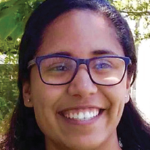The ACR’s Advocacy 101 course will be held Sept. 24 in Washington, D.C. The course is an interactive, intensive, full-day opportunity for fellows in training and program directors to learn about and become inspired to advocate for the continued strength of rheumatology recruitment and support for education, research and clinical practice. Course applications will be…

Rheumatology Online Educational Courses Among Key ARHP Pillars
Editor’s note: The new Pillar Talk column is developed by the ARHP Executive Committee in an effort to share information about ongoing activities related to our four pillars: Education, Practice, Research and Advocacy. The ARHP Online Education Portfolio continues to evolve and grow. The Advanced Rheumatology Course (ARC) and the Fundamentals of Rheumatology Course (FRC)…

Prospects for Treating Patients with Arthritis in African Countries with Few Rheumatologists
At present, the U.S. has approximately 5,000 full-time adult rheumatologists. By the year 2025, that number will decline to roughly 3,600.1 Sounds dire, right? Hold that thought. Question: What country has 99 million people and no adult rheumatologists? Answer: Ethiopia.2 The Nigerian Story And then there is Africa’s most populous country, Nigeria, with roughly 170…

Trainees Discuss Pros, Cons of Rheumatology Residency Rotation
One day not too long ago, right smack in the middle of Thanksgiving and Christmas, I was sitting at the roundtable of our conference room, also known as the solarium due to its sunny disposition. The spirit was high, and we all felt like we could bring some joy to the clinic that day. I…

Medical Schools Address Bias, Diversity, Inclusion in Variety of Ways
“What are you?” A faculty member at the University of California, San Francisco (UCSF) School of Medicine posed this question to a resident while attending rounds. Both were portraying a scene involving micro-aggression during Differences Matter, a three-day orientation for first-year medical students. On the program’s first day, students are introduced to unconscious bias and…

The ARHP Practice Committee Develops Case Study of a Typical Patient with RA
What does a new patient experience as symptoms develop and diagnosis is confirmed? Who is involved in the care of a newly diagnosed patient with rheumatoid arthritis (RA)? The ARHP Practice Committee has developed a case study that will help answer these questions . Meet Joy G., a 48-year-old woman with RA. Follow Joy through…
Cracking, Popping Joints May Foretell Arthritis
(Reuters Health)—Grating, cracking or popping sounds around joints may predict future arthritis, especially in the knees, according to a recent U.S. study. Among thousands of people with no knee pain who were followed for three years, one quarter had noisy knees yet they made up three quarters of the cases of symptomatic knee arthritis that…

Rheumatologists Weigh Pros, Cons of Working in Academia
Some rheumatologists find that an option other than working in a private practice makes the most sense for them. The reasons rheumatologists choose hospital or academic employment vary. Individual Choice When Lisa Criscione-Schreiber, MD, MEd, associate professor of medicine and rheumatology training program director, Duke University, Durham, N.C., was finishing her fellowship in 2003, she…

Ethics Forum: Teach Rheumatology Fellows to Use Good Judgment in Pharmaceutical Company Interactions
We teach medical students, residents and fellows evidence-based medicine to lay the groundwork for rational prescribing and good clinical judgment. But should we stop our rheumatology fellows from interacting with pharmaceutical companies as part of this foundation? It is not surprising that pharmaceutical companies can influence physician prescribing through gifts. At least, it should not…

Do You Have What It Takes to Be an Educator?
Two rheumatologists share why they became educators, the challenges they face and what keeps them teaching young physicians…
- « Previous Page
- 1
- …
- 19
- 20
- 21
- 22
- 23
- …
- 59
- Next Page »